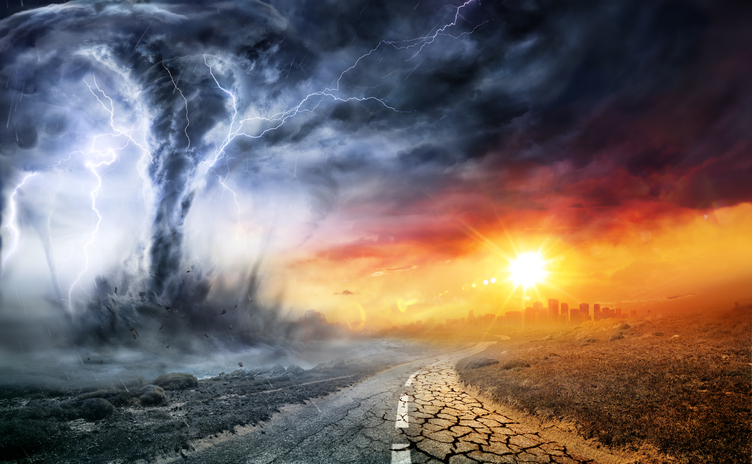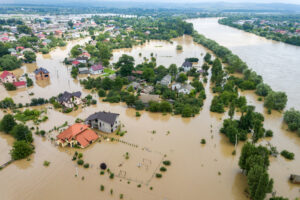Weather is….
… a common and powerful source of metaphors for our emotions, feelings, states of mind. (I would guess that we rarely think about the underlying realities that enliven the images.)
… and – if we pay attention – weather is a prominent focus of news these days, as climate change gains increasing attention and creates intensifying concern.
Two contexts – weather metaphors, weather realities – with very different domains. Where might they meet?
Weather Metaphors, Familiar Phrases
Most of the time, I’m guessing, we don’t pay much attention to our use of weather metaphors – they are just part of our language. Perhaps we use them more in communication with or about others, in an attempt to describe our experience more clearly and vividly? In our writing? Do they show up in our private thoughts – about ourselves and others? Ponder these:
- I’m in a sunny mood today!
- feeling flooded with grief
- he’s cold as ice
- everything seems cloudy/dark inside
- feeling stormy – watch out!
- my mind is foggy
Here are some more expressions that will probably strike a familiar chord:
- steal someone’s thunder
- get wind of something
- be on cloud nine
- weather an emotional storm
- take a rain check
- rain on someone’s parade
- storm out
- take by storm
- under the weather
- calm before the storm
What would we do without these vivid, expressive images! We take them for granted, usually without paying attention to the very real events and conditions that give them their meaning. Writers tend to be more conscious of the subtleties introduced by such an image, of the feelings that might be evoked. But most of us probably don’t pay attention to the underlying power and reality conveyed by the metaphor…
Weather Events, News Reports
If you pay any attention to the news, you will know that weather plays a major role in current news reports. Here is a quick scan of examples:
April 27 reports:
- Tornadoes in Nebraska, Iowa, Texas
- 2 dozen reported tornadoes in 3 states
- “Strong to Severe” storms and flooding in Oklahoma,
- “Deadly floods” in Dubai, Tanzania, Kenya, Burundi
- “Greek skies turn eerie orange as North African dust blows in”
Within the last week:
- Severe floods in China (Guangdong)
- “Europe baked in ‘extreme heat stress”
Other current and recent headlines:
“131 million in US. Live in areas with unhealthy pollution levels”
“Europe is the fastest-warming continent, at nearly twice the average rate”
“Rains bring deadly flash floods to Afghanistan and Pakistan”
“Wave of exceptionally hot weather scorches south and south-east Asia” (parts of Philippines, Thailand, Bangladesh, and more)
(A note about fire: while wildfire is not itself weather, it is closely related to very dry weather and lightning, as well as gusty winds. Wildfires also affect climate, especially through the burning of forests and the resulting release of carbon dioxide.)
I am well aware that many people do not read the news, much less global weather reports. Nevertheless, here they are, on an ongoing basis – reports that describe (and include pictures of) severe weather, and remark on the patterns that seem to be developing. And of course, the weather reports are only the surface evidence of the life-threatening changes that are unfolding at deeper levels of planetary existence.
The metaphors that convey intense experience – storms, flooding, fires – are appearing as common language describing lived realities around the globe. In the opposite direction, weather reports sometimes borrow metaphors from common human experiences or activities, such as “baking.” In an ordinary context, baking can be an enticing word. In the context of weather, the word reflects intense discomfort and possible harm. News and weather writers (and climate scientists) want their readers’ attention, and metaphors may contribute to noticing…
The Power of Metaphors
We might wonder if our (metaphoric) language shapes our experience of weather. But the direct experience of those who are in the midst of “severe weather” isn’t influenced by the language of news reports. Those descriptive phrases often appear after the weather events, or they may be chosen by reporters who (supposedly) take an outside view (even if they share the impact of the weather). We recognize that metaphors have the power to draw attention and intensify response.
I sense that language – including the metaphors – shapes the larger collective story about what’s happening on the planet. As these news reports become more frequent, their metaphors may also become more familiar in our daily language. Perhaps there is a kind of interplay between two arenas: how we use metaphoric language to highlight qualities of experience, and how we (news media etc.) use metaphors to draw more attention to the critical importance of current climate events and patterns.
The implicit message: “This is significant! Pay attention!”
Musings
I have no Major Agenda in this exploration. I do wonder if some metaphors may become more common in our language as climate change intensifies: perhaps our familiar lenses simply aren’t enough any more? I imagine that news reports may increasingly look for striking metaphors, in the attempt to draw attention to global climate changes that are affecting all levels of life. (And I realize that climate-change-deniers are also vocal these days…what metaphors do they use in their talk?)
Perhaps metaphoric language catches our attention more effectively, with the deeper impact that metaphors can evoke? What will it take to realize that this planetary shift is “real”? I wonder if the use of powerful metaphors – along with visual images and actual interviews – might contribute to “waking us up” (metaphor!) to “climate change,” “climate crisis,” “”climate breakdown,” global warming,” “extreme weather,” “carbon footprint,” “environmental breakdown,” the “tipping point.” I hope so (can you tell?)
I invite you to notice metaphors in the language you use and the language around you…


